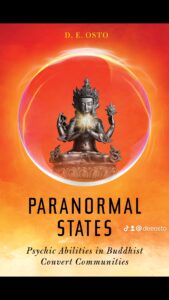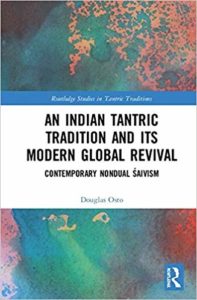Hello! My name is Dee Emerson Douglas Osto (a.k.a. Dee, Douglas Osto, D.E. Osto, Doug; pronouns: they/them). I am a parent, author, scholar, artist, Buddhist practitioner, student nurse, martial artist, and nonbinary bodhisattva-wannabe, who 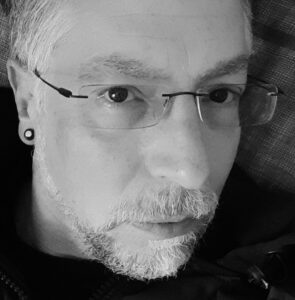 offers private instruction as a mindfulness coach, hypnotherapist, and counsellor. I have a wide range of academic and personal interests such as Buddhism, Hinduism, Asian philosophies and religions, meditation, mindfulness, hypnosis, psychotherapy, gender, altered states of consciousness, and martial arts. In my free time, I enjoy relaxing with my partner and five children, training in Kung Fu, hiking and running. In addition to my academic writing, I self-publish books on meditation, self-help, fiction, and translations of Buddhist and Hindu texts.
offers private instruction as a mindfulness coach, hypnotherapist, and counsellor. I have a wide range of academic and personal interests such as Buddhism, Hinduism, Asian philosophies and religions, meditation, mindfulness, hypnosis, psychotherapy, gender, altered states of consciousness, and martial arts. In my free time, I enjoy relaxing with my partner and five children, training in Kung Fu, hiking and running. In addition to my academic writing, I self-publish books on meditation, self-help, fiction, and translations of Buddhist and Hindu texts.
For more about me, see the “Autobiographical Sketch” on H-Buddhism, or my interview with Chris Kelley here.
Academic Qualifications:
2027 (expected graduation date) Bachelor of Nursing (Level 7), Universal College of Learning (UCOL), Palmerston North, New Zealand.
2025 Level 2 Certifcate in Health and Wellbeing, New Zealand Tertiary College (NZTC), Auckland, New Zealand.
2004 PhD in the Study of Religions, School of Oriental and African Studies (SOAS), University of London, London, UK.
Dissertation: “The Gaṇḍavyūha-sūtra: a study of wealth, gender and power in an Indian Buddhist narrative.”
1999 MA in Asian Languages and Literature, University of Washington, Seattle, USA.
Thesis: “A Study and Translation of the Samantabhadracaryapranidhanam (prose) of the Gaṇḍavyūhasūtra.”
1995 Master of Theological Studies (MTS) in World Religions, Harvard Divinity School, Harvard University, Cambridge, MA, USA.
1991 BA (Honors) in Religious Studies, Grinnell College, Grinnell, Iowa, USA.
Area of Specialization:
Comparative religion, contemporary Buddhist practice, Mahayana Buddhism, South Asian religions, Asian philosophies, Hinduism, religion and altered states of consciousness.
Current Research:
Currently, Dee is working on a study of caring for spiritual health in nursing practice.
Selected Academic Publications:
Altered States: Buddhism and Psychedelic Spirituality in America, New York: Columbia University Press, 2016.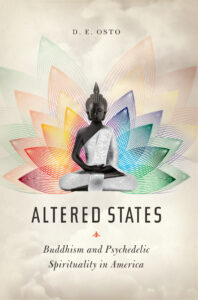
Power, Wealth and Women in Indian Mahayana Buddhism: The Gandavyuha-sutra, London: Routledge, 2008.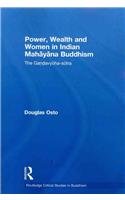
Articles & Book Chapters
- “The Study and Practice of Mahayana Buddhism in the 21st Century,” in Buddhaksetraparisodhana: A Festschrift for Paul Harrison, edited by Charles DiSimone and Nicholas Witkowski (Marburg: Indica et Tibetica Verlag, 2024), pp. 403-418.
- “Forgiveness, Patience, and Confession in Buddhism,” in The Routledge Handbook of the Philosophy and Psychology of Forgiveness, edited by Glenn Pettigrove and Robert Enright (New York and London: Routledge, 2023), pp. 59-72.
- “Altered States and the Origins of the Mahāyāna,” in Setting Out on the Great Way: Essays on Early Mahāyāna Buddhism, edited by Paul Harrison (Sheffield: Equinox, 2018), pp. 177-205.
- “No-Self in Sāṃkhya: A Comparative Look at Classical Sāṃkhya and Theravāda Buddhism,” Philosophy East and West 68.1 (January 2018): 201-222.
- “Merit” in The Buddhist World, edited by John Powers (London: Routledge, 2016), pp. 351-366.
- “Orality, Authority and Conservatism in the Prajñāpāramitā Sūtras,” in Dialogue in Early South Asian Religions, edited by Laurie Patton and Brian Black (Farnham: Ashgate, 2015), pp. 115-135.
- “A New Translation of the Bhadracarī with Introduction and Notes,” New Zealand Journal of Asian Studies 12.2 (December 2010): 1–23.
- “The Supreme Array Scripture: A new interpretation of the title ‘Gandavyūha-sūtra’,” Journal of Indian Philosophy 37.3 (June 2009): 273–290.
- “‘Proto-Tantric’ Elements in the Gandavyūha-sūtra Sūtra,”Journal of Religious History 33.2 (June 2009): 165–177.
- “Soteriology, Asceticism and the Female Body in Two Indian Buddhist Narratives,” Buddhist Studies Review 23.2 (2006): 203–220.

